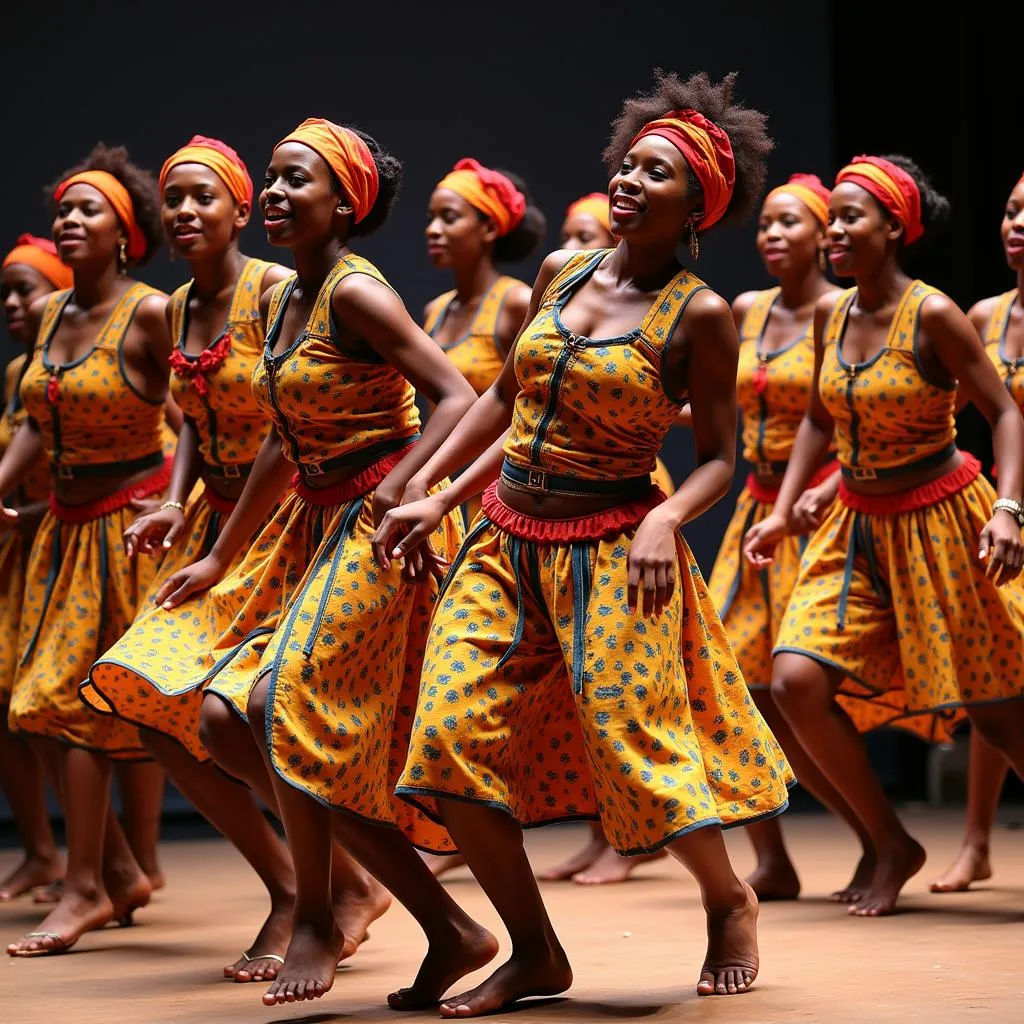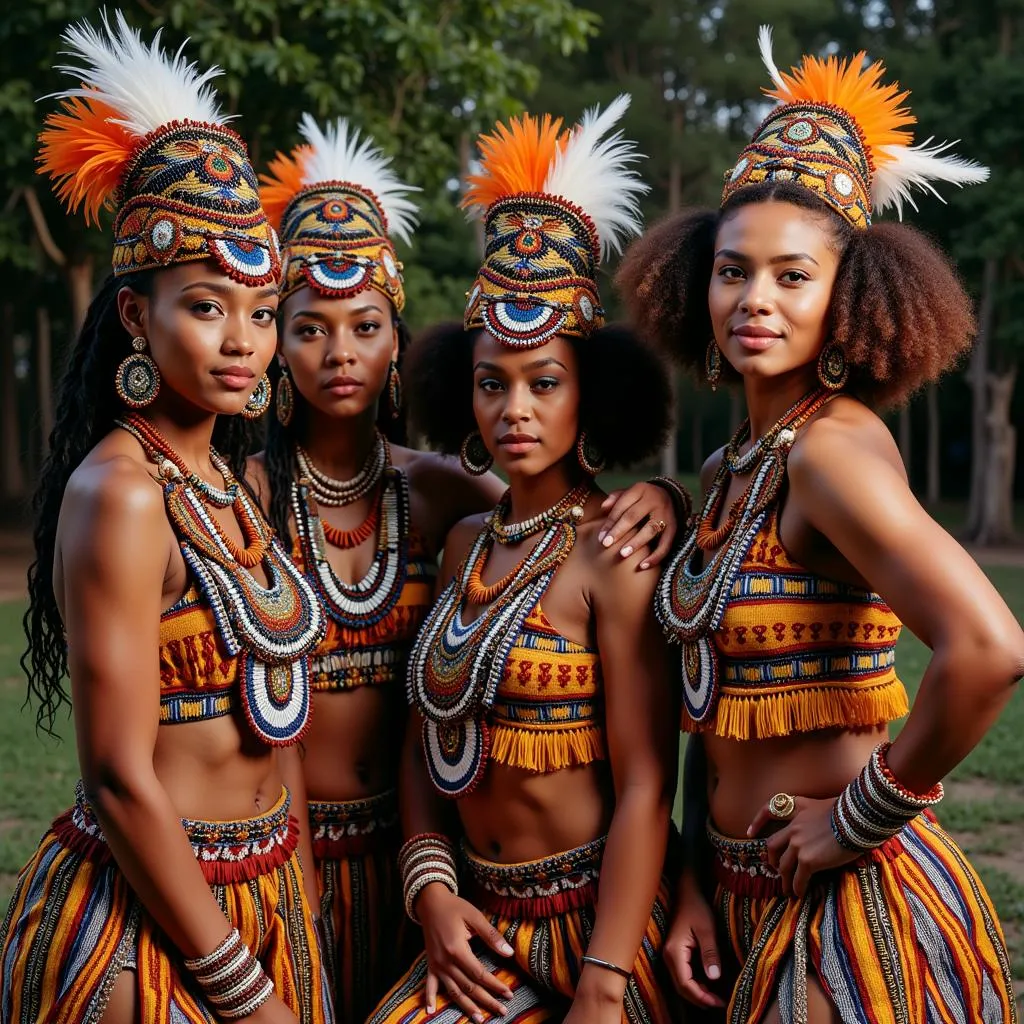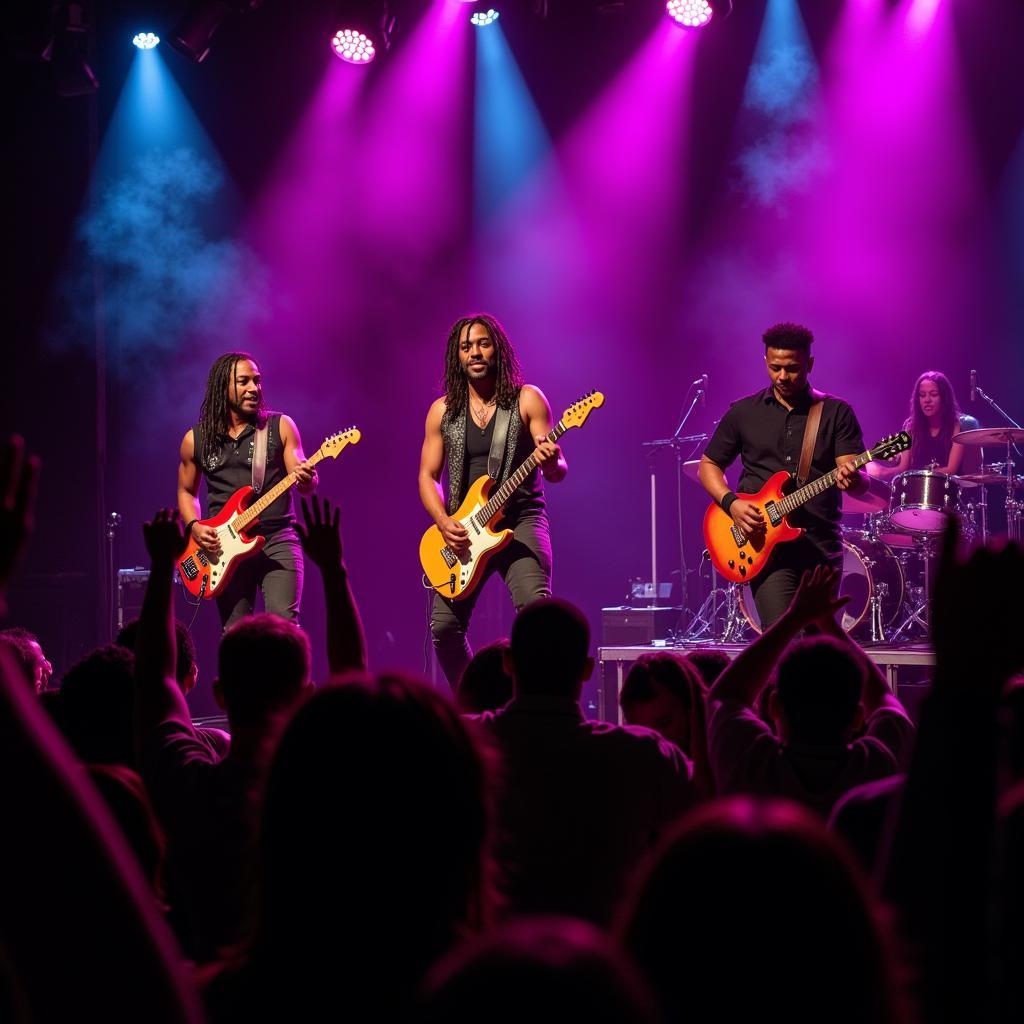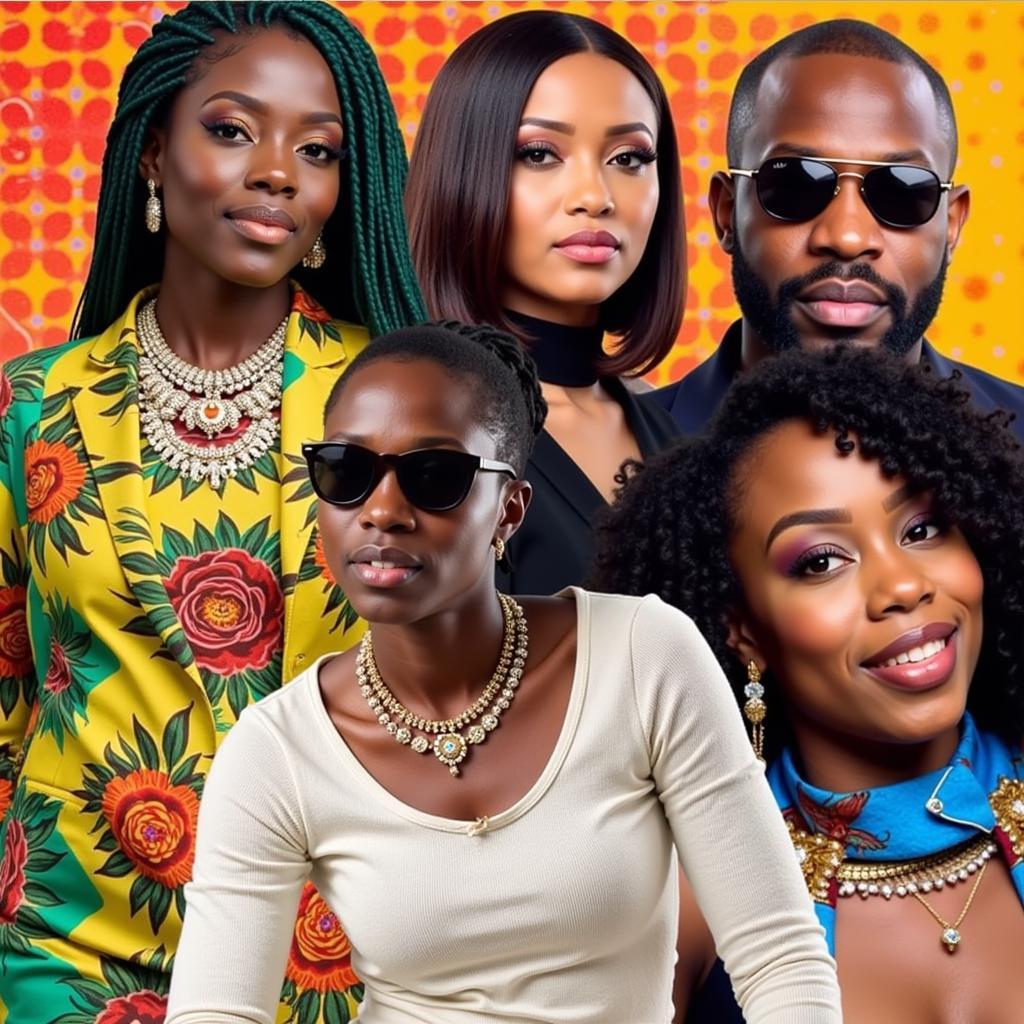The Vibrant World of African Dance Groups
African Dance Groups offer a captivating window into the soul of a continent. More than just entertainment, these groups embody the history, spirituality, and social fabric of diverse African cultures. Their performances are an explosion of energy, rhythm, and symbolism, drawing audiences into a world of storytelling and cultural expression.
A Legacy Passed Down Through Generations
 West African dance group performance
West African dance group performance
Traditional African dance groups are often rooted in ancient rituals and ceremonies. Passed down through generations, the dances serve as a living link to ancestral knowledge. From initiation rites and harvest festivals to celebrations of birth and marriage, dance plays an integral role in marking life’s milestones. These time-honored traditions ensure the preservation of cultural heritage and foster a sense of community and belonging.
More Than Just Movement: The Language of African Dance
African dance is renowned for its intricate polyrhythms and dynamic movements. Every gesture, every step, is imbued with meaning. The rhythmic swaying of hips can represent the ebb and flow of life, while powerful leaps and stomps might symbolize strength and resilience. Costumes and masks add another layer of symbolism, often representing spirits, animals, or ancestral figures. The use of live music, often drumming and singing, further enhances the emotional impact and narrative depth of the performances.
Exploring Different Styles and Regional Variations
 East African dance group in traditional costumes
East African dance group in traditional costumes
The African continent is a tapestry of cultures, each with its own distinct dance traditions. West African dance, known for its high-energy and polycentric movements, stands in contrast to the graceful and fluid movements often found in East African dance styles. From the energetic Gumboot dance of South Africa to the mesmerizing Sufi whirling of North Africa, the diversity of African dance is a testament to the continent’s rich cultural heritage.
African Dance Groups Today: A Global Stage
African dance groups are no longer confined to village squares and ceremonial gatherings. Today, they captivate audiences on world stages, sharing their vibrant traditions with a global audience. Contemporary African dance groups often fuse traditional styles with modern influences, creating innovative and thought-provoking performances that address social and political issues. This evolution ensures that African dance remains a vibrant and evolving art form, continuing to inspire and connect people across cultures.
The Power of African Dance: Unity, Expression, and Celebration
African dance groups offer more than just entertainment; they provide a glimpse into the heart and soul of a continent. Through their performances, these groups celebrate the beauty of African cultures, preserve ancient traditions, and share stories that resonate with people from all walks of life. Whether on a global stage or in a local village, African dance continues to unite, inspire, and uplift, reminding us of the power of movement, music, and community.
FAQs:
1. What are some of the most famous African dance groups?
Some renowned African dance groups include the National Ballet of Senegal, the Dance Theatre of Harlem (with strong African dance influences), and the Maskanda dance groups of South Africa.
2. What are some common instruments used in African dance music?
Drums are central to African dance music, with variations like the djembe, talking drum, and ngoma drums. Other instruments include the kora (harp-lute), the mbira (thumb piano), and various flutes and string instruments.
3. Are there opportunities to learn African dance?
Yes, many dance studios and cultural centers worldwide offer African dance classes for all levels, from beginners to advanced.
Ready to Experience the Magic of African Dance?
Contact us today for more information on African dance groups, workshops, and cultural experiences!
Phone Number: +255768904061
Email: kaka.mag@gmail.com
Address: Mbarali DC Mawindi, Kangaga, Tanzania.
Our dedicated team is available 24/7 to assist you. Discover the beauty and power of African face paint designs, the thriving African IT industry, and engage in enriching African animal art activities. Immerse yourself in the wonders of African culture!

